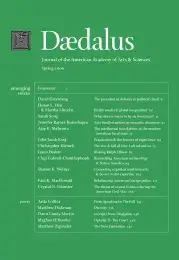Torchlight parades for the television age: the presidential debates as political ritual
During the 2008 vice presidential debate, Alaska Governor Sarah Palin was pressed by her Democratic rival, Delaware Senator Joe Biden, and moderator Gwen Ifill to reply to a question she had previously ignored. The chipper Palin, who thrived on the perception of being persecuted, demurred. “I may not answer the questions that either the moderator or you want to hear,” she parried, “but I’m going to talk straight to the American people.”1
For this statement, Palin suffered not only rebuke, but ridicule. Flaunting her intent to duck a question amounted to a failure of manners. Part of the performance of a presidential (or vice presidential) debate, after all, consists of following certain conventions. One is that candidates are supposed to act as if they are there to report to the public their ticket’s positions on prominent policy issues, thereby helping voters figure out which party better matches their own preferences. According to this logic, Palin’s sin lay not in her evasion of the question–a common enough occurrence in the debates–but in her unabashed admission of the evasion. If a gaffe, in the journalist Michael Kinsley’s formulation, is when a politician tells the truth, Palin told the truth without even the customary inadvertence.2
Kinsley’s axiom, quoted often during the gaffe-ridden 2008 campaign, remains in currency because it highlights the power of the unspoken and sometimes unrecognized assumptions that underpin our politics. These assumptions aren’t always true or even justifiable. But the public, particularly those in the news media who shape our discourse, has a stake in maintaining them. They serve a useful purpose.
An underlying premise of the discourse about the presidential debates is that they exist to inform viewers, who watch them with open minds to learn about the candidates and decide how to vote. In other words, grandiose as it may sound, our culture assigns the debates a vital democratic role: democratic theory holds that effective self-government depends on an informed citizenry, and the debates, more than any other vehicle, are supposed to teach voters what they still need to know about the candidates in the fall of a presidential election season. Accordingly, we eagerly anticipate these contests as potential turning points for the campaigns, the only scheduled events that might by design win or lose votes for one candidate or the other overnight. Journalists invariably speak of them as a rare chance for those all-important undecided voters to make up their endlessly wavering minds. In recent years networks have even convened focus groups of the vacillators on whose fleeting impressions the nation hinges, interviewing them on air after each clash to see if they were moved to reach any decisions that might collectively alter a campaign’s outcome.
. . .
